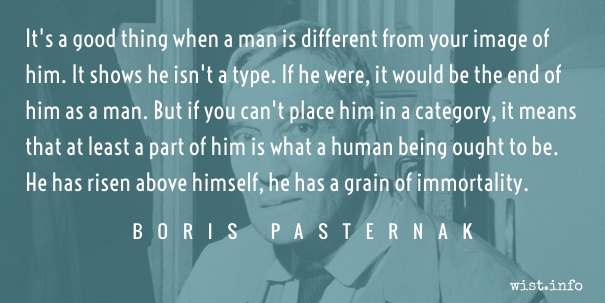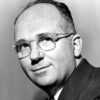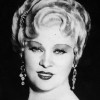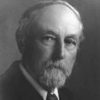It’s a good thing when a man is different from your image of him. It shows he isn’t a type. If he were, it would be the end of him as a man. But if you can’t place him in a category, it means that at least a part of him is what a human being ought to be. He has risen above himself, he has a grain of immortality.
Boris Pasternak (1890-1960) Russian poet, novelist, and literary translator
Doctor Zhivago [До́ктор Жива́го], Part 2, ch. 9 “Varykino,” sec. 4 [Yuri] (1955) [tr. Hayward & Harari (1958), US ed.]
(Source)
Alternate translations:
It’s a good thing when a man is different from your image of him. It shows he isn’t a type. If he were, it would be the end of him as a man. But if you can’t place him in a category, it means that at least a part of him is what a human being ought to be. He has a grain of immortality.
[tr. Hayward & Harari (1958), UK ed.]
It’s good when a man deceives your expectations, when he doesn’t correspond to the preconceived notion of him. To belong to a type is the end of a man, his condemnation. If he doesn’t fall under any category, if he’s not representative, half of what’s demanded of him is there. He’s free of himself, he has achieved a grain of immortality.
[tr. Pevear & Volokhonsky (2010)]
Quotations about:
character
Note not all quotations have been tagged, so Search may find additional quotes on this topic.
What is the goal of parenting? It’s to help a child grow up to be a decent human being, a mensch, a person with compassion, commitment, and caring.
Haim Ginott (1922-1973) Israeli-American school teacher, child psychologist, psychotherapist [b. Haim Ginzburg]
Between Parent and Child, ch. 10 “Summing Up” (2003 ed.) [with A. Ginott and H. W. Goddard]
(Source)
To discern faults, though they be in fashion: Though Vice be clothed in cloth of gold, yet a good man will still know it. It is to no purpose for it to be apparelled in gold, it can never so well disguise it self but that it will be perceived to be of iron. It would cloak it self with the nobility of its Adherents, but it is never stript of its baseness, nor the misery of its slavery.
[Conocer los defectos, por más autorizados que estén. No desconozca la entereza el vicio, aunque se revista de brocado; corónase tal vez de oro, pero no por eso puede disimular el yerro. No pierde la esclavitud de su vileza aunque se desmienta con la nobleza del sujeto.]
Baltasar Gracián y Morales (1601-1658) Spanish Jesuit priest, writer, philosopher
The Art of Worldly Wisdom [Oráculo Manual y Arte de Prudencia], § 186 (1647) [Flesher ed. (1685)]
(Source)
(Source (Spanish)). Alternate translations:
Recognise Faults, however high placed. Integrity cannot mistake vice even when clothed in brocade or perchance crowned with gold, but will not be able to hide its character for all that. Slavery does not lose its vileness, however it vaunt the nobility of its lord and master.
[tr. Jacobs (1892)]
Know what is evil, however much worshiped it may be. Let the man of intelligence not fail to recognize it, even if clothed in brocade, or crowned with gold, because it cannot thereby hide its bane, -- slavery does not lose its infamy, however noble the master.
[tr. Fischer (1937)]
Know when something is a defect, even if it looks like the opposite. Honesty should be able to recognize vice even when it dresses in brocade. Sometimes it wears a crown of gold, but even then it cannot hide its iron. Slavery is just as vile when disguised by high position.
[tr. Maurer (1992)]
‘Tis for little Souls, that truckle under the Weight of Affairs, not to know how clearly to disengage themselves, and not to know how to lay them aside, and take them up again.
[C’est aux petites ames ensevelies du poix des affaires, de ne s’en sçavoir purement desmesler : de ne les sçavoir et laisser et reprendre.]Michel de Montaigne (1533-1592) French essayist
Essays, Book 3, ch. 13 “On Experience [De l’Experience]” (1588) (3.13) (1595) [tr. Cotton (1686)]
(Source)
(Source (French)). Alternate translations:
It is for base and pettie mindes, dulled and overwhelmed with the weight of affaires, to be ignorant how to leave them, and not to know how to free themselves from them; nor how to leave and take them againe.
[tr. Florio (1603)]
’Tis for little souls, that truckle under the weight of affairs, not from them to know how clearly to disengage themselves, not to know how to lay them aside and take them up again.
[tr. Cotton/Hazlitt (1877)]
It is for small souls, buried under the weight of affairs, not to know how to free themselves therefrom entirely; not to know how to leave them and return to them.
[tr. Ives (1925)]
It is for little souls, buried under the weight of business, to be unable to detach themselves cleanly from it or to leave it and pick it up again.
[tr. Frame (1943)]
It is for petty souls overwhelmed by the weight of affairs to be unable to disentangle themselves for them completely, not knowing how to drop them and then take them up again.
[tr. Screech (1987)]
As favour and riches forsake a man, we discover in him the foolishness they concealed, and which no one perceived before.
[À mesure que la faveur et les grands biens se retirent d’un homme, ils laissent voir en lui le ridicule qu’ils couvraient, et qui y était sans que personne s’en aperçût.]Jean de La Bruyère (1645-1696) French essayist, moralist
The Characters [Les Caractères], ch. 6 “Of Gifts of Fortune [Des Biens de Fortune],” § 4 (6.4) (1688) [tr. Van Laun (1885)]
(Source)
(Source (French)). Alternate translations:
When Riches and Favour forsake a Man, we see presently he was a Fool, but no body could find it out in his Prosperity.
[Bullord ed. (1696)]
In proportion as Riches and Favour forsake a Man, we discover he was a Fool, which no body cou'd find out in his Prosperity.
[Curll ed. (1713)]
As Riches and Favour forsake a Man, we discover him to be a Fool, but no body could find it out in his Prosperity.
[Browne ed. (1752)]
As a man falls out of favour and his wealth declines, we discover for the first time the ridiculous aspects of his character, which were always there but which wealth and favour had concealed.
[tr. Stewart (1970)]
Not to be able to bear with all bad-tempered people with whom the world is crowded, shows that a man has not a good temper himself: small change is as necessary in business as golden coin.
[Ne pouvoir supporter tous les mauvais caractères dont le monde est plein n’est pas un fort bon caractère: il faut dans le commerce des pièces d’or et de la monnaie.]
Jean de La Bruyère (1645-1696) French essayist, moralist
The Characters [Les Caractères], ch. 5 “Of Society and Conversation [De la Société et de la Conversation],” § 37 (5.37) (1688) [tr. Van Laun (1885)]
(Source)
(Source (French)). Alternate translations:
We must bear with some peoples bad Characters, as we do with bad Money, for the benefit of Commerce.
[Bullord ed. (1696)]
Not to be able to bear with all the bad Characters the World is full of, is no good Character: Copper Mony, for the sake of Commerce, is necessary as well as Gold and Silver.
[Curll ed. (1713)]
We must bear with some Peoples ill Tempers, as we do with Copper Money, for the benefit of Commerce.
[Browne ed. (1752)]
To be unable to endure all the unpleasant characters of whom the world is full is not an admirable characteristic: we need, in our dealings, both gold coins and small change.
[tr. Stewart (1970)]
I have known nearly all the famous men of our age and I have seen them made wretched by this glorious passion for fame, and die after debauching their moral natures in its service.
[J’ai connu presque tous les hommes célèbres de notre tems, et que je les ai vus malheureux par cette belle passion de célébrité, et mourir, après avoir dégradé par elle leur caractère moral.]Nicolas Chamfort (1741-1794) French writer, epigrammist (b. Nicolas-Sébastien Roch)
Products of Perfected Civilization [Produits de la Civilisation Perfectionée], Part 1 “Maxims and Thoughts [Maximes et Pensées],” “Question” (1795) [tr. Merwin (1969)]
(Source)
(Source (French)). Alternate translation:
I have known nearly every famous man in our times, and I have seen them unhappy through this pretty passion for celebrity, and die after having degraded their moral character for it.
[tr. Siniscalchi (1994)]
We are firm believers in the maxim that for all right judgment of any man or thing it is useful, nay, essential, to see his good qualities before pronouncing on his bad.
Thomas Carlyle (1795-1881) Scottish essayist and historian
“Goethe,” Foreign Review No. 3 (1828-08)
(Source)
Reviewing Goethe's Sämmtliche Werke, Vollständige Ausgabe Letzter Hand (1827). Reprinted in Carlyle, Critical and Miscellaneous Essays (1845).
Modesty is to merit as shadows are to the figure in a painting: it strengthens it and sets it off.
[La modestie est au mérite ce que les ombres sont aux figures dans un tableau: elle lui donne de la force et du relief.]Jean de La Bruyère (1645-1696) French essayist, moralist
The Characters [Les Caractères], ch. 2 “Of Personal Merit [Du Mérite Personnel],” § 17 (2.17) (1688) [tr. Stewart (1970)]
(Source)
(Source (French)). Alternate translations:
Modesty is to Merit, what Shades are to the Figures in a Picture; it gives it Strength and Heightening.
[Curll ed. (1713)]
Modesty is to Merit as Shades to Figures in a Picture; giving it Strength and Beauty.
[Browne ed. (1752)]
Modesty is to merit what shade is to figures in a picture; it gives it strength and makes it stand out.
[tr. Van Laun (1885)]
We are of each an unsocial, taciturn disposition, unwilling to speak, unless we expect to say something that will amaze the whole room, and be handed down to posterity with all of the eclat of a proverb.
Childhood is a thing that happens so early you don’t forget it. Everything else you grow out of, but you never recover from childhood.
Beryl Bainbridge (1932-2010) English novelist
“Beryl Bainbridge and Her Tenth Novel,” interview by Willa Petschek, New York Times (1981-03-01)
(Source)
He that cannot obey, cannot command.
Benjamin Franklin (1706-1790) American statesman, scientist, philosopher, aphorist
Poor Richard (1734 ed.)
(Source)
My ethical state,
Were I wealthy and great,
Is a subject you wish I’d reply on.
Now who can foresee
What his morals might be?
What would yours be if you were a lion?
[Saepe rogare soles, qualis sim, Prisce, futurus,
Si fiam locuples simque repente potens.
Quemquam posse putas mores narrare futuros?
Dic mihi, si fias tu leo, qualis eris?]Martial (AD c.39-c.103) Spanish Roman poet, satirist, epigrammatist [Marcus Valerius Martialis]
Epigrams [Epigrammata], Book 12, epigram 92 (12.92) (AD 101) [tr. Nixon (1911)]
(Source)
"To Priscus." (Source (Latin)). Alternate translations:
Priscus! you've often ask'd me how I'd live,
Should Fate at once both wealth and honour give?
What soul his future conduct can foresee?
Tell me what sort of lion you would be?
[tr. Lewis (<1752)]
What would I do, the question you repeat,
if on a sudden I were rich and great?
Who can himself with future conduct charge?
What would you do, a lion, and at large?
[tr. Hay (1755), ep. 93]
You've often been used, my good friend, for to ask
What sort of man I might prove
Was I rich or soon great? but 'tis no easy talk,
For 'faith I can't tell you, by Jove!
For who do You think, of the men that are here
Can his manners divine, that You see?
And was you as Jonathan's bull or a bear,
Pray what sort of beast would you be?
[tr. Scott (1773)]
Thou asketh oft, how I should brook the hour,
Of wealth o'erwhelming, and resistless pow'r.
His future self what seer can prophesy?
What lion, Priscus, should'st thou make? Reply.
[tr. Elphinston (1782), 2.143]
Priscus! you often ask me what wouild be my future conduct, if I were made suddenly rich or powerful? Who can be competent to judge of his future character under such contingencies? Tell me, if you were metamorphosed into a lion, what kind of lion would you be?
[tr. Amos (1858), ep. 94]
You often ask me, Priscus, what sort of person I should be, if I were to become suddenly rich and powerful. Who can determine what would be his future conduct? Tell me, if you were to become a lion, what sort of a lion would you be?
[tr. Bohn's Classical (1859)]
You are often wont to ask me what sort of person I should be, Priscus, if I became rich and were suddenly powerful. Do you think any man can declare his character in the future? Tell me, if you became a lion, what sort of lion will you be?
[tr. Ker (1919)]
What should I be if great and rich?
That is the sort of question which
One cannot prophesy on;
Apply it to yourself: e.g.,
What sort of lion will you be
If you become a lion?
[tr. Pott & Wright (1921), "Riddles"]
You often ask me, Priscus, how I'ld use
My fortune if I stood in rich men's shoes.
'Tis hard forecasting the effect of pelf;
What sort of lion would you make, yourself?
[tr. Francis & Tatum (1924), ep. 687]
Your question: would my character,
And how, change if I suddenly were
Powerful and rich? Who can foresee
The sort of person he might be?
Supposing, Priscus, you became
A lion, would you be fierce or tame?
[tr. Michie (1972)]
You are wont to ask me, Priscus, what sort of person I should be if I were suddenly to become rich and powerful. Do you suppose that anybody can foretell his character? Tell me, if you were to become a lion, what would you be like?
[tr. Shackleton Bailey (1993)]
Priscus, your perennial party game
Is "How would you handle wealth and power?"
Who knows? But back at you the same:
If you were a lion, would you rage or cower?
[tr. Ericsson (1995)]
If I were what I am not, rich,
Would I become a king?
If you were what you are not, brave,
Would you be anything?
[tr. Wills (2007)]
Priscus, you often ask what I'd be like
if I got wealth and power suddenly.
Can anyone foretell his future conduct?
If you were a lion, what kind would you be?
[tr. McLean (2014)]
In every man’s writings, the character of the writer must lie recorded.
Thomas Carlyle (1795-1881) Scottish essayist and historian
“Goethe,” Foreign Review No. 3 (1828-08)
(Source)
Reviewing Goethe's Sämmtliche Werke, Vollständige Ausgabe Letzter Hand (1827). Reprinted in Carlyle, Critical and Miscellaneous Essays (1845).
An intelligent man is lost if he does not add strength of character to his intelligence.
[Un homme d’esprit est perdu, s’il ne joint pas à l’esprit l’énergie de caractère.]
Nicolas Chamfort (1741-1794) French writer, epigrammist (b. Nicolas-Sébastien Roch)
Products of Perfected Civilization [Produits de la Civilisation Perfectionée], Part 1 “Maxims and Thoughts [Maximes et Pensées],” ch. 4, ¶ 277 (1795) [tr. Mathers (1926)]
(Source)
(Source (French)). Alternate translations:
A person of intellect, without energy added to it, is a failure.
[Source (1893)]
A man of wit is lost, if to his wit he does not join energy of character.
[tr. Hutchinson (1902)]
A man of intelligence is lost if his intelligence is not combined with energy of character.
[tr. Merwin (1969)]
A man of intellect is lost if he does not ally strength of mind to strength of character.
[tr. Pearson (1973)]
Any intelligent man who lacks character is lost.
[tr. Parmée (2003), ¶ 173]
A man with spirit is lost if he doesn't add to his intelligence an energetic character.
[tr. Sinicalchi]
Preoccupation with money is the great test of small natures, but only a small test of great ones; there may be a wide gulf between a man who despises money and a genuinely honest man.
[L’intérêt d’argent est la grande épreuve des petits caractères; mais ce n’est encore que la plus petite pour les caractères distingués; et il y a loin de l’homme qui méprise l’argent, à celui qui est véritablement honnête.]
Nicolas Chamfort (1741-1794) French writer, epigrammist (b. Nicolas-Sébastien Roch)
Products of Perfected Civilization [Produits de la Civilisation Perfectionée], Part 1 “Maxims and Thoughts [Maximes et Pensées],” ch. 2, ¶ 164 (1795) [tr. Mathers (1926)]
(Source)
(Source (French)). Alternate translations:
Concern for money is the great test of small natures; but is scarcely a test at all for those who rise above the ordinary; and there is a long way between the man who scorns money and the one who is genuinely honest.
[tr. Merwin (1969)]
Weak characters think money all-important; for any well-bred person, it's a very minor concern.
[tr. Parmée (2003), ¶ 129]
The desire for money can go very far in proving that a person has a petty character, but it has little to say about a persons sincerity; and there is a great distance between a man who scorns money and someone who is truly honest.
[tr. Siniscalchi]
Character is what emerges from all the little things you were too busy to do yesterday, but did anyway.
Mignon McLaughlin (1913-1983) American journalist and author
The Second Neurotic’s Notebook, ch. 4 (1966)
(Source)
Money is always on its way somewhere; we are only a way station. What we do with it while it’s in our keeping will say much about us — as will the direction it takes after we speed it on its way.
Many who would not take the last cookie would take the last lifeboat.
Mignon McLaughlin (1913-1983) American journalist and author
The Neurotic’s Notebook, ch. 3 (1963)
(Source)
If a man be discreet enough to take to hard drinking in his youth, before his general emptiness is ascertained, his friends invariably credit him with a host of shining qualities which, we are given to understand, lie balked and frustrated by his one unfortunate weakness.
Agnes Repplier (1855-1950) American writer
“A Plea for Humor,” Points of View (1891)
(Source)
Offered as a hypothetical sardonic observation by the author William Dean Howells.
Selfishness must always be forgiven, you know, because there is no hope of a cure.
In the theater, as in life, we prefer a villain with a sense of humor to a hero without one.
Mignon McLaughlin (1913-1983) American journalist and author
The Neurotic’s Notebook, ch. 7 (1963)
(Source)
No man who has once heartily and wholly laughed can be altogether irreclaimably bad.
Thomas Carlyle (1795-1881) Scottish essayist and historian
Sartor Resartus, Book 1, ch. 4 (1831)
(Source)
Politeness and honour have this advantage, that they remain with him who displays them to others.
[La galantería y la honra tienen esta ventaja, que se quedan: aquélla en quien la usa, ésta en quien la hace.]
Baltasar Gracián y Morales (1601-1658) Spanish Jesuit priest, writer, philosopher
The Art of Worldly Wisdom [Oráculo Manual y Arte de Prudencia], § 118 (1647) [tr. Jacobs (1892)]
(Source)
(Source (Spanish)). Alternate translations:
Politeness and a sense of honor have this advantage: we bestow them on others without losing a thing.
[tr. Maurer (1992)]
Gallantry, and honor have this advantage, they are saved through being spent, the first if practiced, the second if worn.
[tr. Fischer (1937)]
Character consists of what you do on the third and fourth tries.
I haven’t a particle of confidence in a man who has no redeeming petty vices whatsoever.
Mark Twain (1835-1910) American writer [pseud. of Samuel Clemens]
“Answers to Correspondents,” The Californian (17 Jun 1865)
(Source)
Reprinted in The Celebrated Jumping Frog of Calaveras County, and Other Sketches (1867).
Do not persist in folly. Some make a duty of failure and having started down the wrong road, think it a badge of character to continue.
[No proseguir la necedad. Hacen algunos empeño del desacierto, y porque comenzaron a errar, les parece que es constancia el proseguir.]
Baltasar Gracián y Morales (1601-1658) Spanish Jesuit priest, writer, philosopher
The Art of Worldly Wisdom [Oráculo Manual y Arte de Prudencia], § 261 (1647) [tr. Fischer (1937)]
(Source)
(Source (Spanish)). Alternate translations:
Not to continue a Foppery. Some make an engagement of their mistakes: when they have once begun to fail, they think they are concerned in honour to continue.
[Flesher ed. (1685)]
Do not follow up a Folly. Many make an obligation out of a blunder, and because they have entered the wrong path thinks it proves their strength of character to go in it.
[tr. Jacobs (1892)]
Don’t persist in folly. Some people commit themselves to their errors. They act mistakenly and consider it constancy to go on that way.
[tr. Maurer (1992)]
If any young Miss reads this autobiography and wants a little advice from a very old hand, I will say to her, when a man threatens to commit suicide after you have refused him, you may be quite sure he is a vain, petty fellow or a great goose; if you felt any doubts about your decision before, you need have none after this and under no circumstances must you give way. To marry a man out of pity is folly; and if you think you are going to influence the kind of fellow who has “never had a chance, poor devil,” you are profoundly mistaken. One can only influence the strong characters in life, not the weak; and it is the height of vanity to suppose that you can make an honest man of anyone.
Margot Asquith (1864-1945) British socialite, author, wit [Emma Margaret Asquith, Countess Oxford and Asquith; Margot Oxford; née Tennant]
Autobiography, Vol. 1, ch. 7 (1920)
(Source)
In a similar vein, in More or Less about Myself, ch. 5 (1934) she wrote: "It is easier to influence strong than weak characters in life."
It is only in romances that people undergo a sudden metamorphosis. In real life, even after the most terrible experiences, the main character remains exactly the same.
If by the age of forty a man is still disliked there is no hope for him.
[年四十而見惡焉、其終也已。]
Confucius (c. 551- c. 479 BC) Chinese philosopher, sage, politician [孔夫子 (Kǒng Fūzǐ, K'ung Fu-tzu, K'ung Fu Tse), 孔子 (Kǒngzǐ, Chungni), 孔丘 (Kǒng Qiū, K'ung Ch'iu)]
The Analects [論語, 论语, Lúnyǔ], Book 17, verse 26 (17.26) (6th C. BC – AD 3rd C.) [tr. Lau (1979)]
(Source)
(Source (Chinese)). Alternate translations:
When a man at forty is the object of dislike, he will always continue what he is.
[tr. Legge (1861)]
When a man meets with odium at forty, he will do so to the end.
[tr. Jennings (1895)]
If a man after forty is an object of dislike to men, he will continue to be so to the end of his days.
[tr. Ku Hung-Ming (1898)]
If a man reach forty and yet be disliked by his fellows, he will be so to the end.
[tr. Soothill (1910)]
Forty and disliked. He is at the end already; too late to alter.
[tr. Soothill (1910) - alternate 1]
At 40 a man's character is settled, and if he still be detested by his fellows, then here his end is reached.
[tr. Soothill (1910) - alternate 2]
If a man is hateful at forty he'll be so to the end.
[tr. Pound (1933)]
One who has reached the age of forty and is still disliked will be so till the end.
[tr. Waley (1938)]
It is all over for the man of forty who is held in aversion.
[tr. Ware (1950), 17.24]
If hateful things are seen in one at the age of forty, that is indeed how one will end up.
[tr. Dawson (1993)]
Whoever, by the age of forty, is still disliked, will remain so till the end.
[tr. Leys (1997)]
If, at forty, a man is still loathed, he is done for.
[tr. Huang (1997), 17.25]
If one is still disliked at his forty years of age, one is going to the end.
[tr. Cai/Yu (1998), No. 466]
The person who at age forty still evokes the dislike of others is a hopeless case.
[tr. Ames/Rosemont (1998)]
If he is forty and is still hated, he will probably be so until the end.
[tr. Brooks/Brooks (1998), 17.24]
If you reach forty and find it all hateful, you'll be that way to the death.
[tr. Hinton (1998), 17.25]
If, having reached the age of forty, you still find yourself despised by others, you will remain despised until the end of your days.
[tr. Slingerland (2003)]
Forty and hated by others -- and he’ll be so the rest of his life.
[tr. Watson (2007)]
If a person has reached forty but is still an outcast, he will not have much hope for the rest of his life.
[tr. Li (2020)]
It is our choices, Harry, that show what we truly are, far more than our abilities.
Joanne "Jo" Rowling (b. 1965) British novelist [writes as J. K. Rowling and Robert Galbraith]
Harry Potter and the Chamber of Secrets [Dumbledore] (1998)
(Source)
Character is made by many acts; it may be lost by a single one.
Aristotle (384-322 BC) Greek philosopher
(Spurious)
Frequently attributed to Aristotle, but not found in his works. One of the earliest references is in J. A. Haigh, "Character," Great Thoughts from Master Minds (5 Oct 1907). Haigh does not present it as his own thought ("Character, it has been well said, is made up ..."). John Christensen notes that the sentiment of the quote is very non-Aristotelian, feeling more like a Christian teaching about sin than a philosophical commentary. Aristotle generally speaks about developing a habit toward virtue (1, 2, 3), not some sort of all-or-nothing moral imperative.
People who hate cats tend to be proud of the fact, and brag about it as if it proved something honest and straightforward in their natures. Nobody brags about hating dogs. To hate dogs would be meanspirited and peculiarly unpatriotic; dogs are a very American concept, fraternal, hearty, and unpretentious, while cats are inscrutable like the wily Oriental and elitist like the European esthete. In advertising cats turn up selling perfume (wily) and expensive rugs and furniture (elitist) , while dogs sell such solid family values as station wagons, life insurance, and sporting goods.
‘Tis fear that proves souls base-born.
[Degeneres animos timor arguit.]
Virgil (70-19 BC) Roman poet [b. Publius Vergilius Maro; also Vergil]
The Aeneid [Ænē̆is], Book 4, l. 13 (4.13) [Dido] (29-19 BC) [tr. Fairclough (1916)]
(Source)
Of the bravery shown in Aeneas' tale demonstrating what a great, if not even divine, man he is.
(Source (Latin)). Alternate translations:
Feare shews degenerate minds.
[tr. Ogilby (1649)]
Fear ever argues a degenerate kind.
[tr. Dryden (1697)]
Fear argues a degenerate mind.
[tr. Davidson/Buckley (1854)]
Fear proves a base-born soul.
[tr. Connington (1866)]
Fear shows degenerate souls.
[tr. Cranch (1872)]
Fear proves the vulgar spirit.
[tr. Mackail (1885)]
For fear it is shows base-born souls.
[tr. Morris (1900)]
Fear argues souls degenerate and base.
[tr. Taylor (1907), st. 2, l. 14]
'Tis cowardice
betrays the base-born soul.
[tr. Williams (1910)]
Fear proves a bastard spirit.
[tr. Humphries (1951)]
Mean souls convict themselves by cowardice.
[tr. Day Lewis (1952)]
For in the face of fear
the mean must fall.
[tr. Mandelbaum (1971)]
Tell-tale fear
Betrays inferior souls.
[tr. Fitzgerald (1981), ll. 19-20]
If there is any baseness in a man, it shows as cowardice.
[tr. West (1990)]
Fear reveals the ignoble spirit.
[tr. Kline (2002)]
Fear
Always gives away men of inferior birth.
[tr. Lombardo (2005)]
Fear exposes the lowborn man at once.
[tr. Fagles (2006), l. 16]
Fear shows up lesser men.
[tr. Bartsch (2021)]
It is what you read when you don’t have to that determines what you will be when you can’t help it.
Charles Francis Potter (1885-1962) American Unitarian minister, theologian, humanist, activist
Speech, Dayton, Ohio (Apr 1927)
Often misattributed to Oscar Wilde. More discussion here: What You Read When You Don’t Have To, Determines What You Will Be When You Can’t Help It – Quote Investigator
Kiva considered that she might be developing a thing for Fundapellonan, which on one hand would be a very not-Kiva thing to do, but on the other hand who gave a fuck if it was “not-Kiva,” because she wasn’t some fucking fictional character destined to do whatever some goddamn hack wanted her to do.
A man has more character in his face at forty than at twenty. He has suffered longer, and the more love, the more suffering, the more character.
Mae West (1892-1980) American film actress
Goodness Had Nothing To Do With It, ch. 21 (1959)
(Source)
To arrive at a just estimate of a renowned man’s character one must judge it by the standards of his time, not ours. Judged by the standards of one century, the noblest characters of an earlier one lose much of their luster; judged by the standards of today, there is probably no illustrious man of four or five centuries ago whose character could meet the test at all points.
Mark Twain (1835-1910) American writer [pseud. of Samuel Clemens]
Joan of Arc, “Translator’s Preface” (1860)
(Source)
A well-born man is fortunate, but so is the man about whom people no longer ask, is he well-born?
[S’il est heureux d’avoir de la naissance, il ne l’est pas moins d’être tel qu’on ne s’informe plus si vous en avez.]
Jean de La Bruyère (1645-1696) French essayist, moralist
The Characters [Les Caractères], ch. 2 “Of Personal Merit [Du Mérite Personnel],” § 21 (2.21) (1688) [tr. Stewart (1970)]
(Source)
(Source (French)). Alternate translations:
If 'tis a happiness to be nobly Descended, 'tis no less to have so much Merit, that our Birth is the least thing considered in us.
[Bullord ed. (1696)]
If it is a Happiness to be nobly Descended, it is not less to have so much Merit, that no body enquires whether we are so or no.
[Browne ed. (1752)]
If it be a happiness to be of noble parentage, it is no less so to possess so much merit that nobody inquires whether we are noble or plebeian.
[tr. Van Laun (1885)]
It is a happiness to be nobly descended; it is not a lesser happiness to have so much merit that nobody enquires whether you are so or not.
[tr. Lee (1903), "Brief Reflexions on Men and Things"]
Precisely because the tyranny of opinion is such as to make eccentricity a reproach, it is desirable, in order to break through that tyranny, that people should be eccentric. Eccentricity has always abounded when and where strength of character has abounded; and the amount of eccentricity in a society has generally been proportional to the amount of genius, mental vigor, and more courage it contained. That so few dare to be eccentric marks the chief danger of the time.
John Stuart Mill (1806-1873) English philosopher and economist
On Liberty, ch. 3 “Of Individuality, as One of the Elements of Well-Being” (1859)
(Source)
Gross and obscure natures, however decorated, seem impure shambles; but character gives splendor to youth, and awe to wrinkled skin and gray hairs.
Ralph Waldo Emerson (1803-1882) American essayist, lecturer, poet
“Beauty,” The Conduct of Life (1860)
(Source)
“Yes,” he said. “But I wonder … I’ve a peculiar feeling that I may never see you again. It is as if I were one of those minor characters in a melodrama who gets shuffled offstage without ever learning how things turn out.”
“I can appreciate the feeling,” I said. “My own role sometimes makes me want to strangle the author. But look at it this way: inside stories seldom live up to one’s expectations. Usually they are grubby little things, reducing down to the basest of motives when all is known. Conjectures and illusions are often the better possessions.”
Roger Zelazny (1937-1995) American writer
Sign of the Unicorn (1972)
(Source)
Bill Roth speaking with Corwin.
The only way of really finding out a man’s true character is to play golf with him. In no other walk of life does the cloven hoof so quickly display itself.
P. G. Wodehouse (1881-1975) Anglo-American humorist, playwright and lyricist [Pelham Grenville Wodehouse]
“Ordeal by Golf,” Collier’s Magazine (6 Dec 1919)
(Source)
Reprinted in The Clicking of Cuthbert, ch. 6 (1922).
Just as we develop our physical muscles through overcoming opposition, such as lifting weights, we develop our character muscles by overcoming challenges and adversity.
Stephen R. Covey (1932-2012) American consultant, author
First Things First, ch. 15 (1994) [with Merrill & Merrill]
(Source)
My advice is: Do not think about your character. If you will think about what you ought to do for other people, your character will take care of itself. Character is a by-product, and any man who devotes himself to its cultivation in his own case will become a selfish prig.
Woodrow Wilson (1856-1924) US President (1913-20), educator, political scientist
Speech, YMCA, Pittsburgh, Pennsylvania (24 Oct 1914)
(Source)
True character arises from a deeper well than religion. It is the internalization of moral principles of a society, augmented by those tenets personally chosen by the individual, strong enough to endure through trials of solitude and adversity. The principles are fitted together into what we call integrity, literally the integrated self, wherein personal decisions feel good and true. Character is in turn the enduring source of virtue. It stands by itself and excites admiration in others. It is not obedience to authority, and while it is often consistent with and reinforced by religious belief, it is not piety.
E. O. Wilson (1929-2021) American biologist, naturalist, writer [Edward Osborne Wilson]
Consilience: The Unity of Knowledge, ch. 11 “Ethics and Religion” (1998)
(Source)
It is only an error in judgment to make a mistake, but it argues an infirmity of character to stick to it.
Adela Rogers St. Johns (1894-1988) American journalist, novelist, screenwriter.
Some Are Born Great (1974)
(Source)
Precisely in trifles, wherein a man is off his guard, does he show his character, and then we are often able at our leisure to observe in small actions or mere mannerisms the boundless egoism which has not the slightest regard for others and in matters of importance does not afterwards deny itself, although it is disguised. We should never miss such an opportunity. If in the petty affairs and circumstances of everyday life, in the things to which the de minimis lex non curat applies, a man acts inconsiderately, seeking merely his own advantage or convenience to the disadvantage of others; if he appropriates that which exists for everybody; then we may be sure that there is no justice in his heart, but that he would be a scoundrel even on a large scale if his hands were not tied by law and authority; we should not trust him across our threshold. Indeed, whoever boldly breaks the laws of his own circle will also break those of the State whenever he can do so without risk.
[Gerade in Kleinigkeiten, als bei welchen der Mensch sich nicht zusammennimmt, zeigt er seinen Charakter, und da kann man oft, an geringfügigen Handlungen, an bloßen Manieren, den gränzenlosen, nicht die mindeste Rücksicht auf Andere kennenden Egoismus bequem beobachten, der sich nachher im Großen nicht verleugnet, wiewohl verlarvt. Und man versäume solche Gelegenheit nicht. Wenn Einer in dem kleinen täglichen Vorgängen und Verhältnissen des Lebens, in den Dingen, von welchen das de minimis lex non curat gilt, rücksichtslos verfährt, bloß seinen Vertheil oder seine Bequemlichkeit, zum Nachtheil Andere, sucht; wenn er sich angeignet was für Alle da ist u. s. w.; da sei man überzeugt, daß in seinem Herzen keine Gerechtigkeit wohnt, sondern er auch im Großen ein Schuft sein wird, sobald das Gesetz und die Gewalt ihm nicht die Hände binden, und traue ihm nicht über die Schwelle. Ja, wer ohne Scheu die Gesetze seines Klubs bricht, wird auch die des Staates brechen, sobald er es ohne Gefahr kann.]
Arthur Schopenhauer (1788-1860) German philosopher
Parerga and Paralipomena, Vol. 1, “Aphorisms on the Wisdom of Life [Aphorismen zur Lebensweisheit],” ch. 4 “Counsels and Maxims [Paränesen und Maximen],” § 3.29 (1851) [tr. Payne (1974)]
(Source)
The Latin means, "The law is not concerned with trifles." (Source (German)) Alternate translations:
A man shows his character just in the way in which he deals with trifles, -- for then he is off his guard. This will often afford a good opportunity of observing the boundless egoism of man's nature, and his total lack of consideration for others; and if these defects show themselves in small things, or merely in his general demeanor, you will find that they also underlie his action in matters of importance, although he may disguise the fact. This is an opportunity which should not be missed. If in the little affairs of every day, -- the trifles of life, those matters to which the rule de minimis non applies, -- a man is inconsiderate and seeks only what is advantageous or convenient to himself, to the prejudice of others' rights; if he appropriates to himself that which belongs to all alike, you may be sure there is no justice in his heart, and that he would be a scoundrel on a wholesale scale, only that law and compulsion bind his hands. Do not trust him beyond your door. He who is not afraid to break the laws of his own private circle, will break those of the State when he can do so with impunity.
[tr. Saunders (1890)]
Men best show their character in trifles, where they are not on their guard. It is in insignificant matters, and in the simplest habits, that we often see the boundless egotism which pays no regard to the feeling of others, and denies nothing to itself.
[In Tryon Edwards, A Dictionary of Thoughts, "Character" (1891); this is the version quoted most often.]
Never does a man portray his own character more vividly than in his manner of portraying another’s.
Jean Paul Richter (1763-1825) German writer, art historian, philosopher, littérateur [Johann Paul Friedrich Richter; pseud. Jean Paul]
Titan: A Romance, Jubilee 28, cycle 110 (1803) [tr. Brooks (1864)]
(Source)
Alternate translation: "A man never reveals his character more vividly than when portraying the character of another."
It is an error to suppose that no man understands his own character. Most persons know even their failings very well, only they persist in giving them names different from those usually assigned by the rest of the world; and they compensate for this mistake by naming, at first sight, with singular accuracy, those very same failings in others.
Arthur Helps (1813-1875) English writer and bureaucrat
Thoughts in the Cloister and the Crowd (1835)
(Source)
I’d write a story once in a while, but I wouldn’t pester editors with it. I’d write of people and places like I knew, and I’d make my characters talk everyday English; and I’d let the sun rise and set in the usual quiet way without much fuss over the fact. If I had to have villains at all, I’d give them a chance, Anne — I’d give them a chance. There are some terrible bad men in the world, I suppose, but you’d have to go a long piece to find them — though Mrs. Lynde believes we’re all bad. But most of us have got a little decency somewhere in us.
Lucy Maud Montgomery (1874-1942) Canadian author
Anne of the Island, ch. 12 [Mr. Harrison] (1915)
(Source)
A person who has no genuine sense of pity for the weak is missing a basic source of strength, for one of the prime moral forces that comprise greatness and strength of character is a feeling of mercy. The ruthless man, au fond, is always a weak and frightened man.
Emotion doesn’t travel in a straight line. Like water, our feelings trickle down through cracks and crevices, seeking out the little pockets of neediness and neglect, the hairline fractures in our character usually hidden from public view.











































